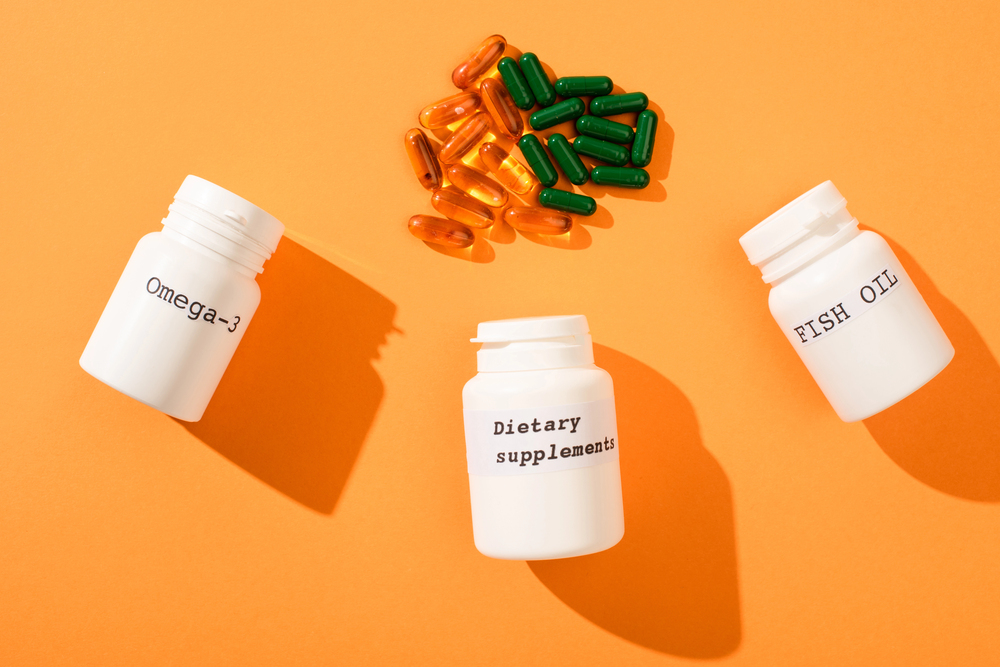
Dietary Supplement Sellers Beware — Avoid FDA Warning Letters Guide
Aug 25, 2022 4 minute Read
The FDA (Food and Drug Administration) is the government agency responsible for protecting the public health. It’s also responsible for regulating dietary supplements and ensuring that they are safe, effective and accurately labeled.
When it comes down to it, the FDA wants you to be successful in your business. But if you’re selling dietary supplements that aren’t produced in compliance with Good Manufacturing Practices (GMPs), you’re putting yourself at risk of getting a warning letter from the FDA.
Oregon’s Wild Harvest is on the chopping block for poor manufacturing practices and neglecting FDA communications. Based on this event, here are our tips on how to avoid receiving a warning letter from the FDA.
The most important step is to understand and comply with the FDA’s regulations.
Dietary supplements (or “supplements”) are foods or ingredients intended to supplement the diet. Supplements can be found in many forms — tablets, capsules, chewable tablets and gummies — but they all have one thing in common: they’re supposed to help consumers improve their health through nutritional value alone. Wether it be weight loss or more energy through natural stimulants, dietary supplements have taken the world by storm.
As a dietary supplements seller, you’re responsible for ensuring that your products comply with FDA regulations. And your dietary supplement manufacturer is responsible for ensuring that their products comply with FDA regulations. If a product fails to do so, you are both liable.
Dietary supplement sellers must register with the FDA and submit a list of all ingredients used in their products. Therefore, if you’re selling dietary supplements, you should already be registered as a business with the FDA. If not, this is something that needs to be done right away. The FDA has specific guidelines for registering as a dietary supplement seller.
Be very careful about claims you make, whether on your website or in print materials.
The FDA has specific guidelines for claims that can be made about dietary supplements. You should carefully review these guidelines before making any claims about your product. If you are unsure whether a claim is legal, consult with an attorney who specializes in this area of law.
You should also be aware that if you make claims about your product, the US Food and Drug Administration can investigate and take action against you if they feel your claims are false or misleading. Keep in mind that even if your product contains only natural ingredients, it can still be considered a new drug if it has an effect on the body.
Be sure that the dietary supplements you sell to customers include the required information.
The required information includes:
- The name of the supplement. This must appear on the front panel or first label panel along with other required information including net quantity.
- The name of the manufacturer, packer, distributor, or importer (whichever is applicable). If you are an individual who is selling a dietary supplement in your store, this information must be stated on a second label attached to the package.
- A supplements facts panel with all ingredients (including inactive ingredients, their names, and their quantities), serving size, total calories and how calories are broken up, and percentage of daily value.
The label and disclaimer requirements are a joint effort between the FDA and the FTC via the Cosmetics Act and affect supplements, medical devices, and cosmetics. You can read the full text here.
If you sell dietary supplements that aren’t produced in compliance with Good Manufacturing Practices (GMPs), you’re putting yourself at risk of getting a warning letter.
The FDA has the authority take action against any dietary supplement that it believes to be adulterated, misbranded or in violation of the law.
You could be fined or even have your business shut down. The FDA has some very strict rules about manufacturing dietary supplements especially those with new dietary ingredients, and if you don’t follow them, the consequences can be severe. If you’re caught selling unapproved substances as dietary supplements, you could face fines up to $200,000 per offense.
GMPs are a set of regulations that must be followed to ensure that dietary supplements are produced in a safe and sanitary manner. They’re designed to ensure that the ingredients used in your products are safe, pure, and properly labeled so people know what they’re getting when they buy your products. Following GMP measures will ensure the safety of your product and business.
Make sure the dietary supplements you sell meet all specifications and standards for identity, purity, strength and composition.
Because dietary supplements are not subject to the same regulatory oversight as prescription pharmaceuticals, it is up to you as a dietary supplements seller to make sure your products are safe for consumption.
This includes making sure that the dietary supplements you sell come from reputable manufacturers who produce them in compliance with Good Manufacturing Practices (GMPs). If a product is not manufactured in compliance with GMPs or otherwise does not meet these requirements when it leaves the manufacturing facility, it will likely be adulterated or misbranded.
Make sure that any facilities your business uses follow GMPs.
It is important to make sure that any facilities your business uses follow GMPs. These are the same standards for all dietary supplements, and they help ensure that products are produced in a way that is safe for consumers. If your facility does not meet these standards, it could be flagged by FDA inspectors and you will get a warning letter from them.
Avoid using ingredients that have been recalled by the FDA or warned against in FDA alerts or advisories.
If a supplement contains an ingredient that has been recalled or warned against, it is considered adulterated. If your business uses any of these ingredients in production, you can be fined and lose your license to manufacture dietary supplements. Make sure that all of the ingredients used to make your product are listed on its label.
The FDA is constantly issuing warnings about the use of certain ingredients, and it’s important to take them seriously. If you are using any ingredient that has been recalled or warned against in an FDA alert or advisory, stop using it immediately.
Some prohibited ingredients the FDA will not accept in your dietary supplement product include:
- ephedrine
- amphetamines
- methylsynephrine
- higenamine
- octodrine
- octopamine
- BMPEA
Also keep your equipment and facilities in good condition. Follow the FDA’s recommendations for avoiding contamination, including cleaning, sanitizing and controlling temperature. Use ingredients or products that have been recalled by the FDA only after they have been cleared for use by the agency. Avoid using ingredients or products that have been warned against in FDA alerts or advisories.
Carefully monitor your shipments for all recalls to ensure your business doesn’t inadvertently stock products that have been recalled or subject to warnings from the FDA.
As a dietary supplement seller, you have the responsibility of ensuring that all products you sell are safe and fit for human consumption. You also have the right to be notified if a product has been recalled or faces warnings from the FDA.
If you receive any warning letters from the FDA or notice product recalls affecting your business, it’s crucial that you take action immediately to avoid being on their radar in the future.
Most importantly, respond to FDA requests clearly and promptly.
The most important thing you can do to avoid receiving a warning letter from the FDA is to respond quickly and clearly. The FDA won’t be happy if you don’t reply at all, or take weeks or months to get back to them.
When responding, be honest and open about any issues that are affecting your business operations. Don’t try to hide anything—the FDA is looking for signs of deception or dishonesty in your responses.
In your response, provide the content of dietary supplements following FDA warning letters with each revision you make to ease the process. The FDA does not issue warning letters as freely as you might think. They really are a final notice, so your follow-up is crucial.
The best way to keep out of trouble with the FDA is by being careful with what you say in your response. Remember that they are not an enemy, they’re looking for compliance. If you can ensure them that you’re taking steps to protect consumers and right and wrongs they’ve found, you should be in the clear.
The #1 trick to keep your supplements business running smoothly.
Avoiding a warning letter from the FDA is not easy. It requires careful attention to detail and strong communication skills. However, if you take care of these things, you can avoid the headaches that come with getting a warning letter from the FDA and keep your business running smoothly.
We’ve given you our tips on how to avoid FDA warning letters as a supplements seller. Now we’re telling you the best way to keep your business running smoothly (besides compliance) is with the right payments ecosystem. DirectPayNet will set you up with a supplements merchant account that links you with a payment processor who supports your business model.
Keep your business running smoothly, now and for the future. Contact us today.





1 thought on “Dietary Supplement Sellers Beware — Avoid FDA Warning Letters Guide”